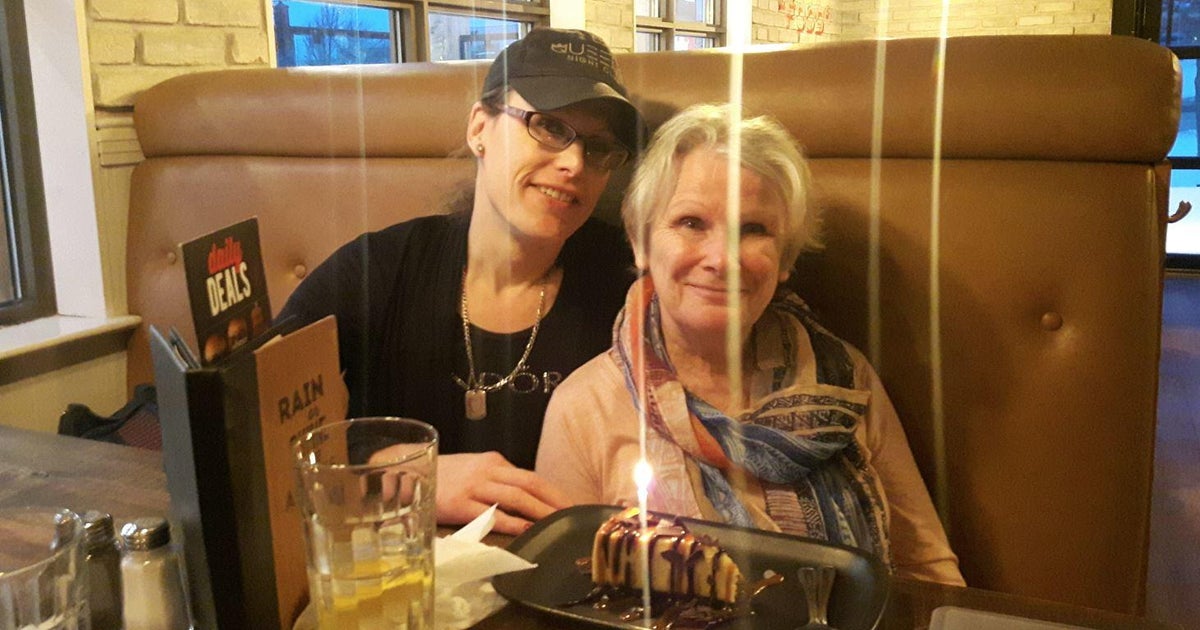Animal tranquilizer turning up in deadly overdoses across U.S.
Chester, Vermont — Brooke Goodwin came home one night last March after being out with friends. She had just turned 23 the day before, had a good job and was planning to go away with friends the following weekend. Her mother, whose bedroom is next door to the kitchen, heard her daughter get some food and go to bed.
But Brooke never came downstairs the next day. Her older sister found her in her room. She had overdosed on a toxic mix of the powerful opioid fentanyl cut with xylazine, an animal sedative that is making its way into the illicit drug supply, particularly in the Northeast.
Her death has "just ripped us to shreds," said her mother, Deb Walker, who has four other children.
"I didn't even know Brooke was using drugs. I know absolutely she did not know that that was in there," she said.
According to a report from the Centers for Disease Control and Prevention this autumn, xylazine was involved in fatal drug overdoses in 23 states in 2019, with the highest rate — 67% — happening in the Northeast. The animal sedative used in veterinary medicine to sedate cows, horses, sheep and other animals is being added to other drugs, mostly fentanyl and heroin, as a cutting agent, officials said.
But unlike opioids, there's no antidote like naloxone, also called Narcan, specific to a xylazine overdose.
The animal tranquilizer is also not a controlled substance and not approved for human use. When used in illicitly produced opioids, xylazine may increase the risk for fatal overdose, the CDC warns.
"If somebody's overdosing on xylazine or on heroin cut with xylazine, that naloxone is not going to have much of an effect on the part of the overdose that's driven by the xylazine," said Dr. Scott Hadland, an addiction doctor and chief of adolescent and young adult medicine at the MassGeneral Hospital for Children in Boston.
Supportive measures can be used if a person is attended to early enough, such as resuscitation, getting them fluids and other sorts of hospital care, Hadland said. "But this is much more difficult to manage out in the community because it's inevitably going to be an overdose that involves multiple substances including opioids," he said.
While the rate of overdose deaths where xylazine was listed as a cause of death was low at 1.2%, the report states that the animal tranquilizer's detection may be underestimated. That's because routine post-death toxicology tests "might not have included tests for xylazine, and current testing protocols for xylazine are not standard."
"It has been going on for a time but there's also a lot of indications from local authorities that the problem is worsening, particularly here in the Northeast," said Hadland.
One or more other drugs were also listed as the cause of the overdose deaths, including heroin and cocaine, with fentanyl being the most common, according to the CDC report.
"Fentanyl we know to be in the drug supply. We know it's in the heroin supply, so often when you think you're buying heroin, you're in fact getting fentanyl. I think that's what's happening with xylazine," Hadland said. "You think you're getting heroin and you're getting something that's cut with xylazine."
Nationally, overdose deaths have been rising for more than two decades but surged 30% in the latest year. Health officials say the jump is tied to the COVID-19 pandemic and a more dangerous drug supply.
In the small rural state of Vermont, the number of fatal overdoses involving xylazine combined with opioids tripled from five in 2020 to 15 in the first seven months of this year, according to a report from the Vermont Department of Health.
Lt. Casey Daniell, commander of the Vermont State Police drug unit, said it's common to see xylazine in the test results for the drugs that police are purchasing undercover.
"I think the biggest issue is the fact that it's not a controlled substance, so there's no regulation on it," he said. "It's no different than aspirin," so people cannot be charged for distributing it.
Walker says her daughter was poisoned.
Drugs and addiction had come up many times in their conversations, Walker said, because Goodwin was helping friends who were using.
"She was trying to help them out. She did everything she could to try and help them get clean and they pulled her down," Walker said while visiting Goodwin's grave earlier this month.
The more information that gets out there about xylazine, the better, she said.
"There are so many people that would like to not be (using) that haven't been able to beat it. Those might be the people that would actually hear this and understand this and it might help and that would be super," Walker said.
Brooke not only lived with her mother but worked with her at Precision Valley Communications, a mapping, engineering and design corporation for the telecommunications and utility industries, where she was a CAD operator.
"All my coworkers just thought she was wonderful and everyone was just so shocked. There was no clue. She was not an addict; however, she was using."
Brooke died on March 14, 2021, two days after her birthday and a day before her mother's. She "enjoyed her dog, photography, road trips and investigating the supernatural," according to her obituary.
She was buried the day before Halloween, her favorite holiday, and people who attended were encouraged to dress up. Now her 9-year-old sisters, who are twins, are asking their mother if the family will get Brooke a Christmas present.
Her friend, Haley Decelle, says Brooke was "kind, calm and level-headed" and the pair had gone on frequent road trips and had matching tattoos. Decelle is pregnant now.
"It sucks because we always talked about doing all this stuff together when one of us got pregnant," she said. "And now I don't get to do it."




